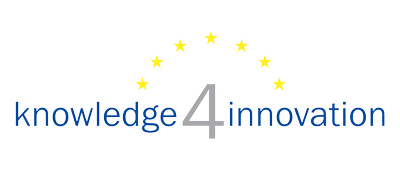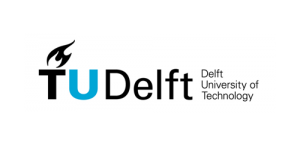november, 2018
Time
(Tuesday) 12:30 - 15:00
Location
Members' Salon, European Parliament
Event Details
Is it
Event Details
- Is it possible to build a living cell starting from its basic molecular components?
- And what will be the technological and societal impact of such an achievement?
Building a synthetic cell is one of the grand scientific and intellectual challenges of the 21st century. At the same time the knowledge of life processes that will result from the construction of a synthetic cell has the potential to lead to a paradigm shift in biotechnology applications in all areas. Examples range from the design of smart drugs and drug delivery systems, to cell-based therapy, to the production of bio materials and bio fuels to new methods for pathogen control and for the prevention of animal and plant diseases.
Europe has built a particularly strong track record in the field of bottom-up synthetic biology as compared to the US and Asia, and is in an excellent position to take a global lead. Europe has a strong presence in pharmaceutical, food and materials industries and a quickly developing ecosystem of small biotech companies, which can provide industrial know-how to quickly act on technological capabilities developed in synthetic cell research.
However, triggered and inspired by the successful European community building with this initiative, the US community has started to organize itself and the NSF is taking initiatives to start new funding programs in this area.
This small scale, high-level lunch event will start with a short introduction on the synthetic cell research and technology status, and the positioning of the European initiative worldwide.
A plenary debate will then follow centered on the following topics:
- How to maximize opportunities for European industry and for the citizens?
- How to secure Europe’s leading position with respect to US and Asiatic countries?
- What is the necessary framework in terms of Responsible Research and Innovation?
- What form for the Synthetic Cell Initiative in the new European R&I programme?
Among the participants, Nobel Prize winners (to be confirmed) and high-level representatives from industry.
Host
Caroline Nagtegaal MEP
Speakers for this event
-
Nagtegaal, Caroline
Nagtegaal, Caroline
Member of the European Parliament
Caroline Nagtegaal MEP (1980) was elected in the European Parliament since November 2017 on behalf of the Dutch liberal party VVD. The VVD is part of the ALDE Group, Alliance of Liberals and Democrats for Europe. As a member of the Committee on Economic and Monetary Affairs (ECON) she is involved in subjects as macro-economics, financial regulations, EMU, FinTech, Bitcoin and crowdfunding. She focusses on improving the resilience of the financial markets and enhancing growth potential of European SMEs, for example by developing an EU framework for crowdfunding. She is also working on a new budgetary tool that promotes structural reforms in the Member States. As substitute member of the Committee on Industry, Research and Energy (ITRE) she deals with energy, cyber security, space, quantum technology and robotics. She took care of the new cyber security legislation. She is also committed to Horizon Europe, a programme dedicated to excellence and innovation. At this moment, she is shadow rapporteur on the Space Programme. Besides that, she is vice-president of the delegation on relations of the European Parliament with India and co-chair of the Innovation Group. Prior to her election to the European Parliament, Ms. Nagtegaal worked at Royal Schiphol Group and Port of Rotterdam Authority. She dealt with public & external affairs for those companies.
Member of the European Parliament
-
Prof. Dr. Dabrock, Peter
Prof. Dr. Dabrock, Peter
Chair, University of Erlangen / German Ethics Council
Professor Peter Dabrock, born 1964, studied Protestant and Catholic Theology, Philosophy and Social Sciences in Würzburg, Bonn and Bochum, Germany. After several positions in academia as researcher, Assistant, Associate and Full Professor in Bochum and Marburg (from 1995-2010) he has been Chair of Systematic Theology (Ethics) at the University of Erlangen-Nuremberg since October 2010. Beyond serving in many high-level national and international advisory bodies in academia, Church, and Society including the European Group on Ethics (2011-2016) he has been an appointed member of the German Ethics Council since 2012. Since 2016 he has been its elected Chairperson. Dabrock has published several books and more than 200 articles with special focus on ethics of life sciences, of technology (including ethics of energy), of social justice and of life styles.
Chair, University of Erlangen / German Ethics Council
-
Schwille, Petra
Schwille, Petra
Director, Max Planck Institute of Biochemistry
Petra Schwille studied physics in Stuttgart and Göttingen and obtained her PhD in 1996 with Nobel Laureate Manfred Eigen at the MPI for Biophysical Chemistry in Göttingen, Germany. After a postdoctoral stay at Cornell University (Ithaca, USA) she established a research group at the MPI Göttingen in 1999 and accepted a call as professor and chair of biophysics at the BIOTEC of the TU Dresden in 2002. In 2011, she was appointed as scientific member of the Max Planck Society and director at the MPI of Biochemistry, Martinsried. Her research interests range from single-molecule biophysics to bottom-up synthetic biology of artificial cells.
Director, Max Planck Institute of Biochemistry
-
Théry, Manuel
Théry, Manuel
Research director CEA
Manuel Théry works on cell shape and internal architecture. He studies the skeleton of the cell, the “cytoskeleton”. He has developed micro-devices to control cell shape in order to study how cytoskeleton filaments form networks that sense and adapt to geometrical boundary conditions. Recently he developed “in vitro” cell-free reconstitution assays in which isolated filaments grow and adapt to geometrical cues.
Research director CEA
-
Thole, Esther
Thole, Esther
Science journalist and writer
Author of Creators of Life (original NL: Makers van Leven), Maven Publishing (2018). In her book, editor Esther Thole describes how scientists build structures on the nano-scale towards hierarchically ordered materials or building blocks for life.
Science journalist and writer
Speakers
Moderator: Esther Thole, Science journalist and writer
Speakers:
Marileen van Dogeterom, Chair, Department of Bionanoscience, Delft University of Technology
Petra Schwille, Director, Max Planck Institute of Biochemistry
Manuel Thery, Research director CEA
Prof. Dr. Peter Dabrock, Chair, University of Erlangen/German Ethics Council

